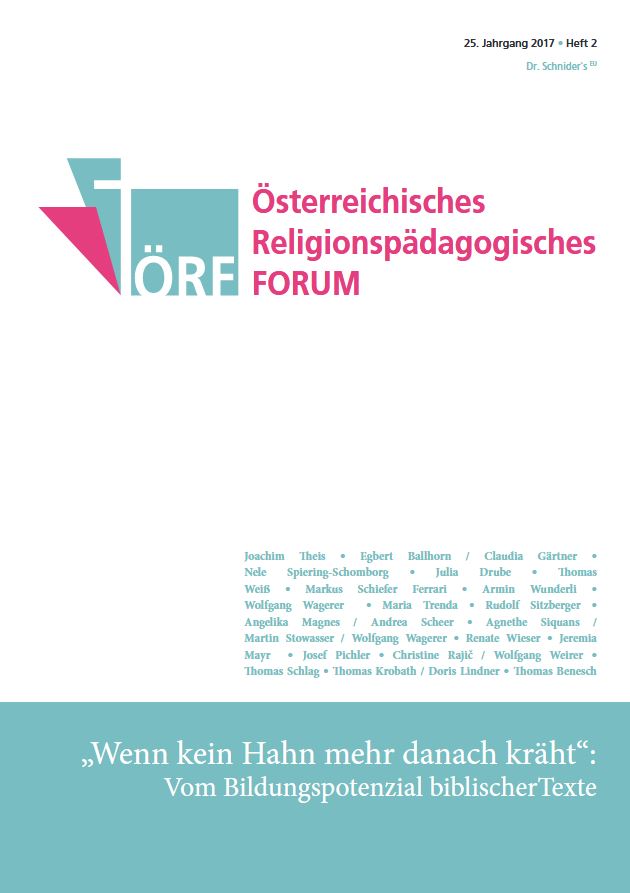On the Educational Potentials of Biblical Texts
Keywords:
educational potentials, biblical didactics, constructivism, enabling didactics, search for meaningAbstract
Biblical education as a holistic process goes far beyond biblical learning. It must be understood as a lifelong process, in which both biblical texts and their understanders operate appropriating their counterpart in a dialogical way. – Neither does the recipient’s horizon of understanding appear as an empty room, which had to be filled with the text only, nor is the latter a dead material one could only examine cognitively. The recipient discovers the meaning of the biblical text recomposing it by existential appropriation. So the text is brought to live in each individual reality. Both scientific insights and subjective structures as well as the understanders’ community must be included to avoid potential one-sidednesses. Unfortunately, a special negative association obscures the approach of the bible very often: Still biblical work as part of religious education appears in a cognitively oriented habit, which is neither regarding the vitality and sovereignty of the biblical texts nor the students’ desire for meaning. Moreover, the bible is getting misused for teaching moral terms or pontifications. Such downfalls can be disrupted by biblical didactics which are empowerment didactics. Regarding the sovereignty of biblical texts, these didactics assist the understander with his/her individuation by opening the texts with focus on the understander’s otherness. Thus each the text and the recipient become subjects in a dialogue. The approach of the Biblical-Enabling-Didactics leads the Bible to become always new a book of life. Understanding them from within their hermeneutics, empowerment didactics could be raised to the principle of biblical didactics in general and grow into an essential element of holistic education.

